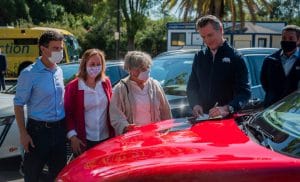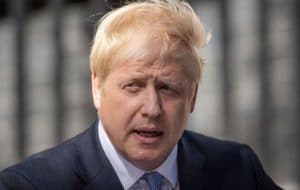
Washington is set to become the first state to completely ban the sale of vehicles using internal combustion engines if Governor Jay Inslee signs into law a bill just passed by the Northwest state’s legislature.
Similar bans are being put on the rulebooks in a number of places, including California, New Jersey and Massachusetts, as well as in countries like Great Britain and Norway, but Washington’s would be the first to take effect.
“Clean Cars 2030 is a critical step to meet urgent carbon reduction goals here in Washington and can serve as a model and impetus for other states to accelerate the switch to EVs,” said State Sen. Marko Liias, one of the measure’s sponsors. “Passage of this legislation takes the guesswork and uncertainty out of the electric-vehicle transition by creating a clear timeline with the data, tools, and guidelines we need to help businesses, developers, governments and consumers plan with confidence.”
The EV tipping point

Currently, electrified vehicles, including hybrids, plug-in hybrids and pure battery-electric models, account for barely 6% of total U.S. new vehicle sales. BEV demand has been growing during the last few years but still accounts for barely 2% of the overall market. But it is expected to gain momentum with the introduction of a wave of new products delivering longer range and shorter charging times.
“We believe 2021 is truly the tipping point for electric vehicles,” General Motors CEO Mary Barra said on Friday during the announcement of the automaker’s second battery plant. The $2.3 billion facility will be built in Spring Hill, Tennessee and employ about 1,200 workers.
This year certainly seems to be building momentum in terms of pro-EV regulations. The Biden administration’s proposed infrastructure program would earmark $174 billion to be directly invested in promoting battery cars. That includes the set up of 500,000 U.S. charging stations, for one thing, and an expansion of current federal EV incentive programs.
Lawmakers, regulators looking at ICE bans

Meanwhile, more and more government bodies are moving to either ban internal combustion vehicles or promote the sale of BEVs. Great Britain recently moved up its planned restrictions by five years. It will allow the sale of only hybrids and plug-in hybrids by 2030, with even PHEVs barred come 2035. California has laid out timelines for phasing out both passenger vehicles and commercial trucks. China wants automakers at least 25% of the vehicles sold in that country to be PHEVs or BEVs by 2025, with an outright ban under consideration. The Biden White House is reportedly also considering a phase-out plan.
Washington state could be the first to go all-electric — though the Clean Cars 2030 bill passed last week leaves the exact date fluid.
Where’s the money to come from?
The timeline actually would depend on getting enough of the vehicles in the state switched to a vehicle-miles-traveled tax scheme, rather than a conventional model where motorists pay road taxes on a per-gallon basis. The traditional approach won’t work with EVs since they currently pay nothing towards state and federal highway funds.

Washington is one of a number of states looking for ways to generate road taxes in an EV era. A number of states have begun adding fees for battery-electric vehicles and even conventional hybrids since they pay less in the way of gas taxes per mile by being more fuel efficient. Ironically, some of those states also offer sales incentives to win car buyers over to BEVs,
For its part, motorists in Washington state may qualify for a sales tax exemption on some electrified vehicles.
Automakers now more open to bans
Washington became the 12th state to adopt a zero-emissions program in March 2020, but E2SHB 1287, the Clean Cars 2030 measure, will take that to a new level if signed by Gov. Inslee.
Such measures would traditionally run into forceful opposition from the auto industry, but manufacturers have begun shifting strategies. General Motors now plans to phase out internal combustion products entirely by 2035. Bentley hopes to get there by 2030.







